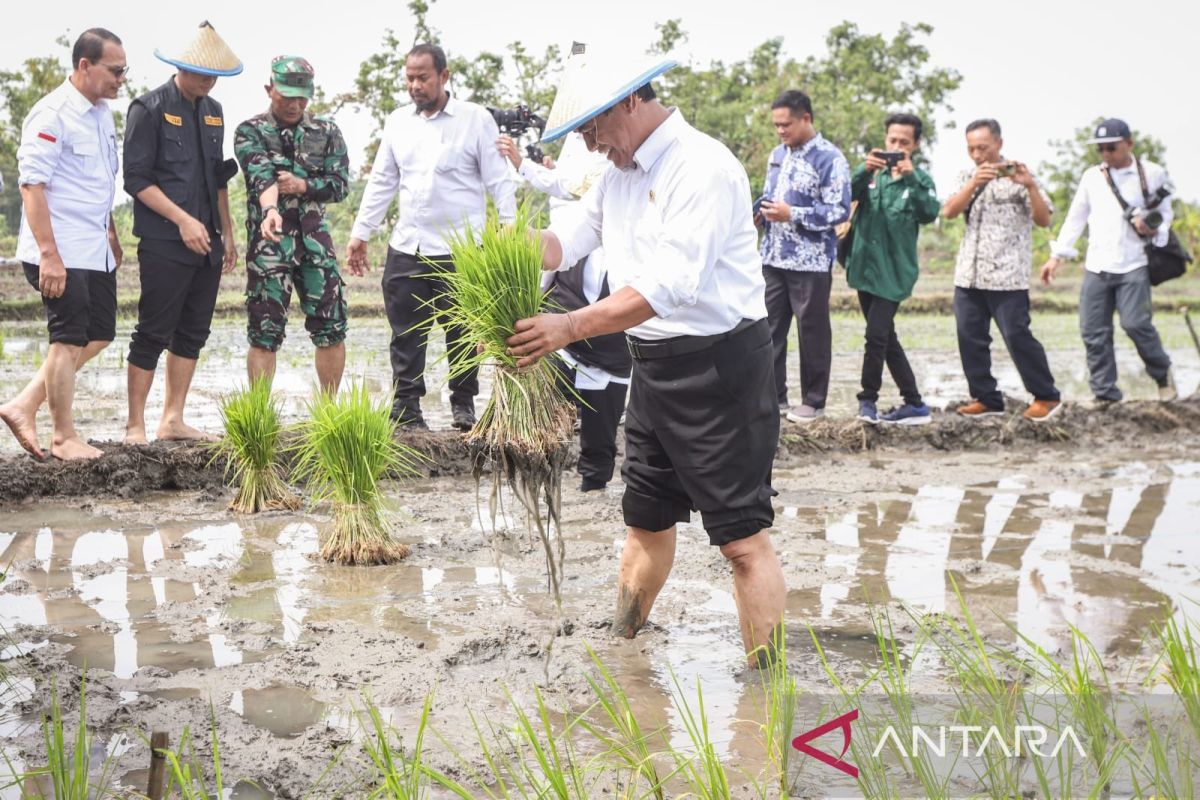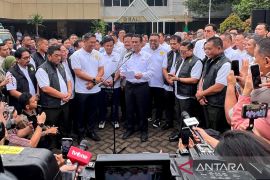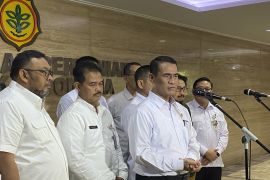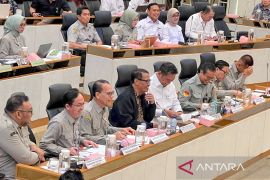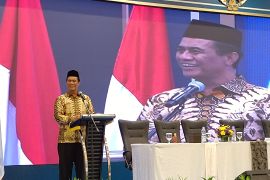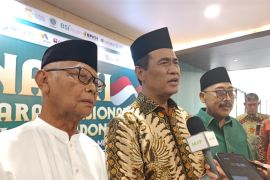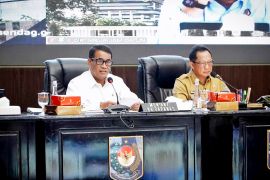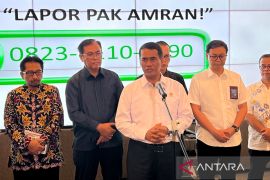There are those who have different views regarding food estate. But for me, we should continue this program.Jakarta (ANTARA) - Agriculture Minister Andi Amran Sulaiman on Wednesday said he believes that the food estate program must be continued to support agricultural intensification and extensification.
"We will intensify our existing agriculture and build the food estate as a precautionary reserve. Food estate will be a state reserve," he informed at the Presidential Palace Complex in Jakarta.
He said he is confident that the food estate program will be successful if it is managed on a large scale and backed by modern agricultural management.
"We will provide a large-scale rice field in Indonesia for modern agriculture. We will utilize machinery starting from the planting, fertilizing, to processing (phases)," Sulaiman informed.
The food estate program, which is a part of the 2020–2024 National Strategic Program, aims to develop several commodities, namely chilies, rice, cassava, corn, peanuts, and potatoes, the minister added.
The program initiated by President Joko Widodo (Jokowi) is being implemented across a number of regions, including Central Kalimantan, North Sumatra, East Nusa Tenggara, Yogyakarta, West Java, Central Java, East Java, and Papua.
Each food estate region is developing different commodities. For example, the food estate in Central Sumba is focusing on developing rice and corn.
Responding to criticism of the program from one of the presidential candidates, Anies Baswedan, Sulaiman said that differences in views are normal. According to Baswedan, the food estate concept is too centralized and does not guarantee uniform results.
"There are those who have different views regarding food estate. But for me, we should continue this program. In 2017, 2019, and 2020, we have already been self-sufficient. We should continue the positive trend," Minister Sulaiman added.
Baswedan has said that instead of continuing President Widodo's food estate program, he will focus on developing a contract farming system, which he considers to be fairer for farmers.
He claimed that he used the system to meet food needs in Jakarta, where he served as governor from 2017–2022.
At the time, regional-owned enterprise Jakarta Food Station entered into contracts with farmer groups in several regions to supply food to Jakarta.
In this way, Jakarta received a steady food supply, while the farmers enjoyed certainty regarding prices and buyers for the agreed contract period.
Related news: Government to establish food estate in Merauke as KEK
Related news: VP Amin inaugurates Nusantara Food Estate to support new capital
Related news: Food estates making positive impact on farmers, regions: ministry
Translator: Yashinta Difa P, Resinta Sulistiyandari
Editor: Azis Kurmala
Copyright © ANTARA 2023
